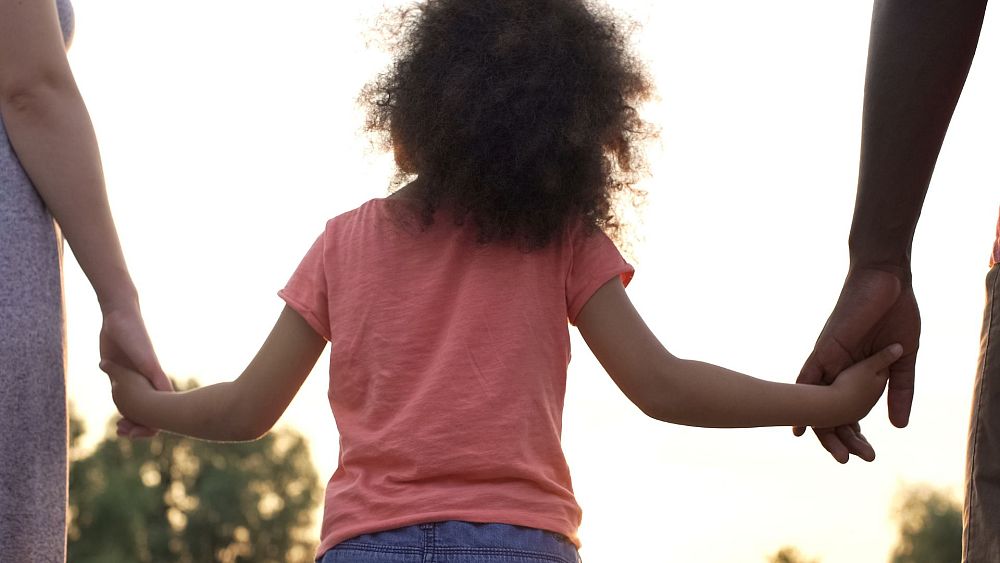
Groundbreaking research has shed light on the intricate relationship between childhood stress, positive parenting, and the brain.
In a scientific paper published in the journal PNAS Nexus, researchers from the University of Pittsburgh have shed light on the intricate relationship between childhood stress – such as economic anxiety, being bullied, or the death of a loved one – and the brain’s structure and function, which can lead to compromised mental health and well-being.
“There is really classic work where if you’re stressed, your hippocampus gets smaller. But if you’re in a very, very enriched environment filled with lots of kinds of resources and new experiences, your hippocampus can get bigger,” explains Dr Jamie Hanson, research scientist at the University of Pittsburgh and lead author of the study.
The hippocampus is a region of the brain that plays a critical role in learning and memory and is also highly susceptible to stress, and the tissue is deemed a “critical component of the limbic system’s regulation of emotion processing and behavioural responding.”
The changes in the structure of the brain do not come without consequences, and they can ultimately lead to more behavioural problems, meaning people may “break more rules, and be a bit more aggressive,” Hanson tells Euronews Next.
Previous observational studies have found that positive parenting behaviours – such as being warm, validating, and responsive – relate to larger hippocampal volumes and attenuated growth of amygdala and prefrontal cortex volumes.
The amygdala is a neural system for processing fearful and threatening stimuli.
But the evidence in the neurological space – meaning, beyond observational remarks – was “limited” and with “gaps.”
In the pursuit of unravelling direct intricate connections between childhood stress, parenting styles, and their impact on the developing brain, Hanson, with his team, conducted a comprehensive neuroimaging study.
Leveraging data from the Healthy Brain Network – an ongoing initiative focused on creating and sharing a biobank of data from 10,000 New York area participants – the scientists examined MRI images – brain scans – from a cohort of nearly 500 children aged between 10 and 17 years to measure brain tissue and investigate the size of specific brain regions, including the hippocampus.
To compare the brains with their exposure to stress, they directly asked children about the number of adverse life events they had experienced and how distressed each of those events made them.
The results from the brain scanning confirm behavioural observations
“Consistent with prior research, we found that more childhood stress correlated with smaller hippocampal volumes,” says Hanson.
The study confirmed that those who had experienced distress from negative events but who also perceived their parents as being warm and supportive exhibited fewer changes in the structure of the hippocampus and any following behaviour, such as rule-breaking or aggression.
In other words, positive parenting proved to have protective effects against the connection between stress and behaviour at a neurological level.
The images consistently revealed that high-stress levels were associated with reduced volume in the hippocampus, leading to “behavioural consequences”.
However, when high-stress levels were associated with positive parenting, “you didn’t see the association with [violent] behavioural patterns.”
“But the really interesting wrinkle” Hanson says, was the study did not find this protective effect when looking at what the caregivers thought of their own parenting. In other words, if parents said they were supportive and positive in their parenting, but the child did not perceive it that way, there was no observable effect in the scans.
“So it’s really about the kid perceiving the caring attention – and making sure that they feel it,” he says.
Hanson says the findings stress the emerging interest in the field to understand “perceptions” and the need to prioritise the “individual experiencing” of events when pursuing further studies.
How can parents be more supportive of protecting children’s neurological development?
Parents can offer support to their children by using praise, demonstrating physical affection, and expressing pride in their children’s accomplishments, says Hanson, suggesting they compliment their children’s behaviour when merited, be present during challenging times, and meet them at their emotional level.
“I think about a kid falling down and skinning their knee while riding their bike, and a parent being able to pretty quickly kind of attend to them, hold and hug them, help them, maybe, to stop crying, or let them express if they’re sad or upset.”
Modern parenting culture
While some may argue that modern parenting is already more permissive or less strict than previous generations, the magnitude of stressors in today’s society may counteract some positive improvements, Hanson notes.
“Parenting has definitely evolved over time, and I think that we are definitely more sensitive and I think warmer than maybe we were on average, you know, 50 years ago. However, I think stress has boosted up just the same.”
Therefore, it is crucial to continue supporting families and encouraging positive parenting practices to offset the impact of stress on youth development because “there are neurobiological consequences,” he says.
The brain remains a highly adaptable organ, explains Hansen, emphasising the potential for interventions, even after stressful events with unsupportive parents.
This is “not to say that if parents are not warmer if kids do not perceive these care, that things are irrevocable or broken,” he adds. “It just may take some additional work and some additional support to change or to overwrite some of those experiences or those processes.”
“I think about this as kind of a call to think about supporting families.”
“How kids are supported and how they feel when they’re growing up can really set the stage for a lot of their development.”
